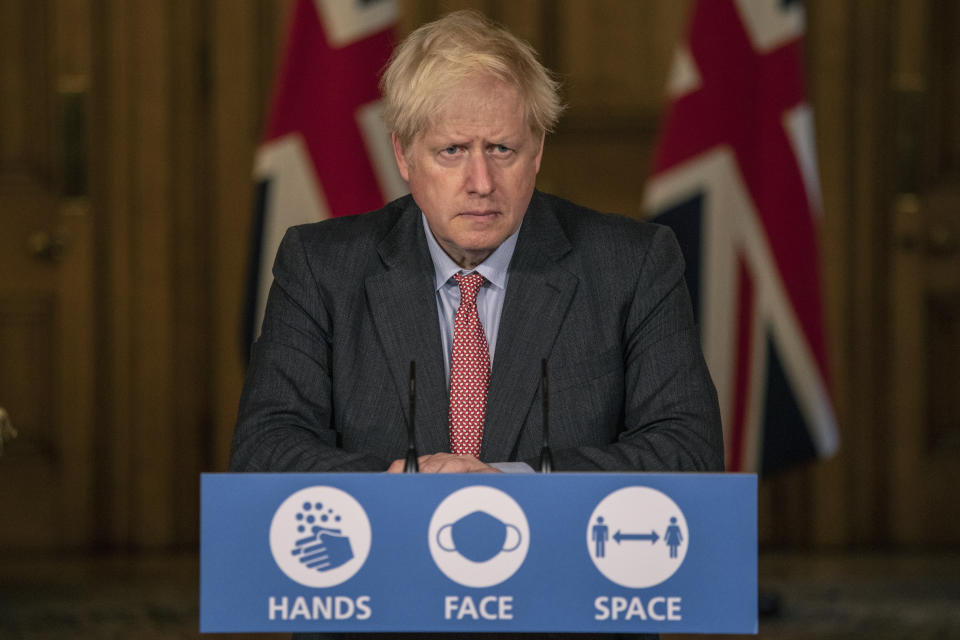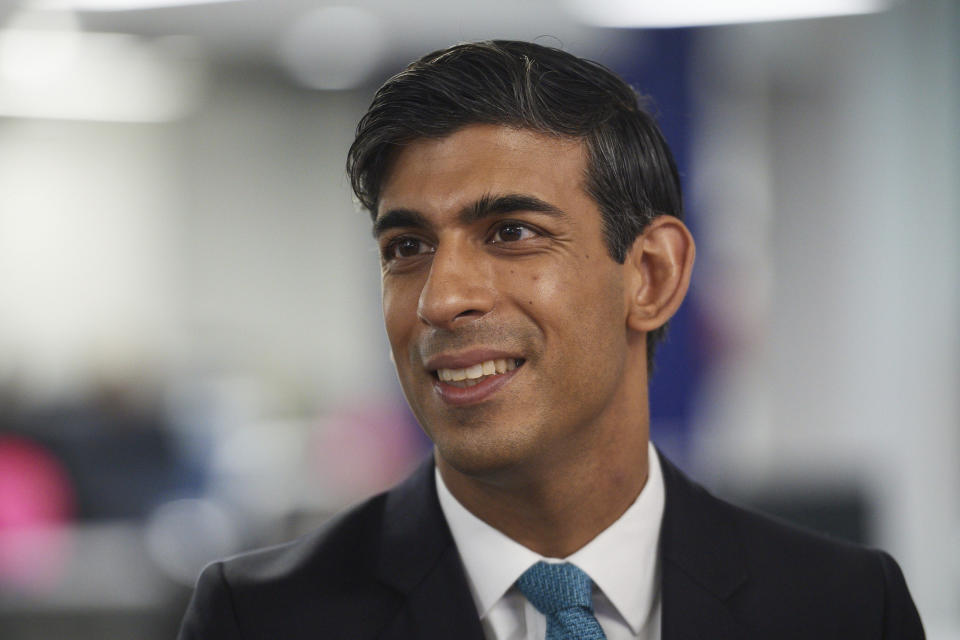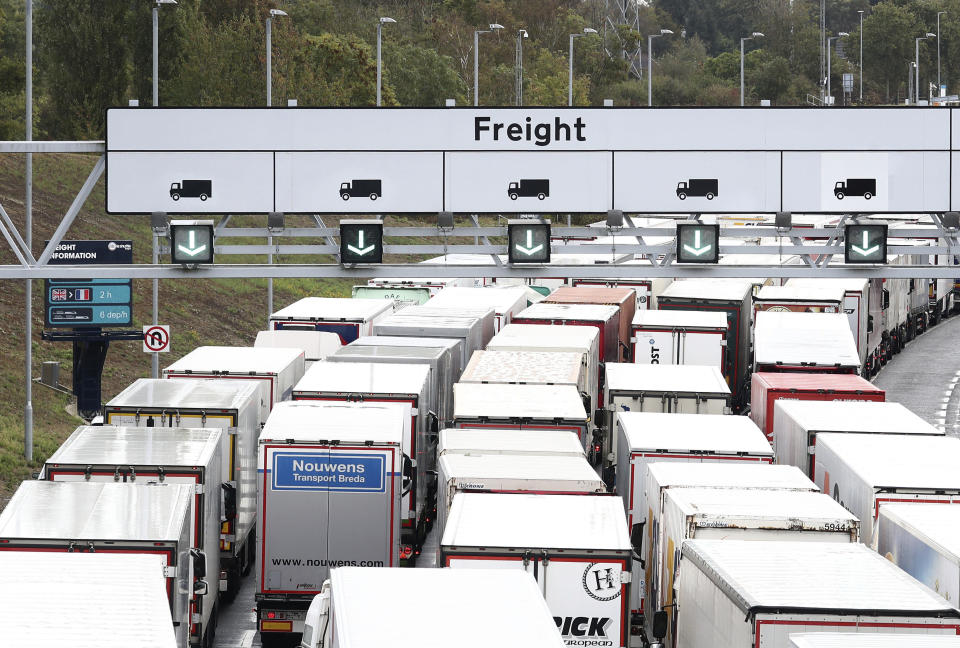UK economy faces 'perfect storm' as winter looms

The UK economy is expected to stall in the coming months — and may even go into reverse — as it faces a triple threat of the COVID-19 second wave, the end of furlough, and Brexit.
“Going forward, the UK almost has this perfect storm,” Alejandra Grindal, senior international economist at Ned Davis Research, told Yahoo Finance UK.
The UK economy was already weak before the pandemic struck and suffered the biggest economic collapse of any developed nation during the crisis.
Data from the Office for National Statistics, published on Friday, showed a nascent recovery from this collapse lost steam in August. GDP grew by just 2.1% in the month, well below economists’ forecasts and down from 8.7% in June.
READ MORE: UK economy slows further in August despite Eat Out to Help Out
“The absence of momentum does not bode well,” said Barclays economist Fabrice Montagne.
Deceleration is expected to continue in the months ahead. The government is poised to introduce new restrictions to cope with COVID-19, a Brexit deadline looms, and changes to government support schemes could force many onto the dole queue.
“There is further cause for concern ahead,” said Dr Kemar Whyte, a senior economist at the National Institute of Economic and Social Research.
‘Circuit breaker’ for pubs and restaurants
COVID-19 cases have been surging in the UK in recent weeks, forcing the government to reluctantly plan stricter measures to try and halt the spread of the virus.
The government is expected to announce a new “traffic light” system of local lockdowns as early as Monday. The new system could see businesses ordered closed in areas where cases are growing fastest.
Sanjay Raja, Deutsche Bank’s UK economist, said a “circuit breaker” shutdown for the UK hospitality sector was “likely.” Scotland this week announced bars and pubs would be shut for 16 days in a bid to curb infections there.

“We expect the UK government to implement similar restrictions across hotspots around the north of England in the coming days,” Raja wrote in a note on Friday.
Raja estimated that a full shutdown of the hospitality sector would shave 1% off monthly GDP. ING put the figure as high as 3%. Both estimates came before the chancellor announced new support for businesses hit by local lockdowns on Friday, but underline the magnitude of the potential impact.
‘No substitute for an open economy’
As restrictions ramp up, the government’s flagship job support scheme is coming to an end. The furlough programme will close at the end of October.
On Friday, chancellor Rishi Sunak announced new support to help areas hit by local lockdowns. The programme amounts to a local furlough scheme for staff and includes cash grants of up to £3,000 ($3,883) per month for affected businesses.
READ MORE: UK chancellor announces 'local furlough' scheme and business grants
Roger Barker, director of policy at the Institute of Directors, said the extension would “provide a lifeline for many companies and people impacted by the efforts to stop the virus spreading.”
But he said there would still be “potential second-order impacts of local lockdowns.” Shutting restaurants will mean lower demand for meat and vegetable suppliers, for example. If those suppliers are based outside of the lockdown area, they won’t be eligible for support.
“At the end of the day, no fiscal support will ever be a substitute for an open, functioning economy,” said Adam Marshall, the director general of the British Chamber of Commerce.

The end of furlough creates problems not just for areas hit by local lockdowns, but the wider economy too. The ONS this week estimated that 9% of the workforce remains on furlough.
The chancellor has announced a new scheme that will subsidise the wages of part-time workers after furlough as long as their jobs remain viable. But the key word here is viable — many people currently on furlough may find themselves out of work next month as employers judge their jobs are no longer needed.
Grindal said the replacement programme was “not going to cover nearly as much people as the furlough scheme.”
No-deal Brexit ‘still on the table’
“Then of course, the elephant in the room, you’ve got Brexit,” Grindal said.
Boris Johnson has set a deadline of 15 October to reach a trade deal with the EU, although recent speculation suggests talks could go beyond this date. Both sides must come to some agreement soon, though. The UK exits the Brexit transition period on 1 January and time must be left to ratify any agreement.
Recent reporting suggests both sides are inching closer to a deal but an agreement remains far from certain.
“I think people are underestimating the risk of a no-deal Brexit,” Grindal said. “I think it’s still on the table.”
Exiting the transition period without a deal could mean queues of up to 7,000 trucks at the border. Grindal believes the pound could break below $1.20 in a no-deal scenario, putting further pressure on the UK economy.

The combination of Brexit, an end to government jobs support, the looming ramp up of restrictions, and an already slowing economy means economists are gloomy about the prospects for the British economy.
NIESR is forecasting 0% GDP growth in September, growth of 1.5% in the third quarter and 1.3% in the fourth quarter. That would leave the economy still well below pandemic levels.
Bank of America expects the UK economy to grow by 0% in the final three months of 2020 and the first quarter of 2021. However, on Friday the investment bank said there were mounting “downside risks to our forecasts” — suggesting it believes the UK economy may even shrink in the coming months.
“Looking ahead, we expect the re-imposition of national and local COVID-19 restrictions — combined with the latest escalation in Brexit uncertainty — to weigh yet further on sequential GDP growth through Q4 and Q1,” Goldman Sachs economist Adrian Paul said on Friday.
WATCH: What is a no-deal Brexit?

 Yahoo Finance
Yahoo Finance 